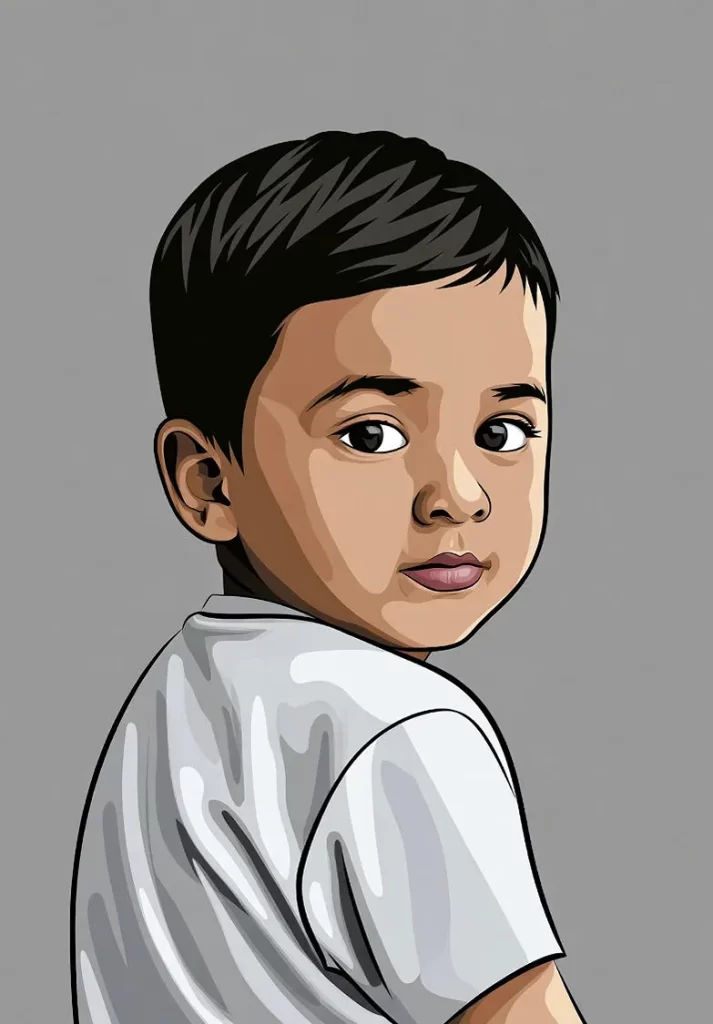- Home
- Sexual Abuse
- Child Sexual Abuse
- Signs of Child Sexual Abuse
Signs of Child Sexual Abuse
- October 22, 2025
-
Sarah Miller
- Fact Checked By Our Attorneys
Recognizing the signs of child sexual abuse is critical for protecting children and helping them get the support they need. Children who have been sexually abused may show physical discomfort, emotional distress, or changes in behavior. While no single symptom confirms abuse, patterns of concerning behavior or unexplained physical issues should never be ignored.
Childhood sexual abuse can include sexual assault, sexual exploitation, or repeated inappropriate contact, often occurring in places where a child should feel safe. Early intervention is essential for both the child’s well-being and pursuing justice.
If you suspect a child has been abused, you don’t have to face it alone. Our compassionate legal team offers a free case review to help you understand your options and take the first step toward justice. Learn more about Child Sexual Abuse.
No Win, No Fee. Let the Best Sex Abuse Attorneys Fight for your Compensation!
Key Takeaways:
Child sexual abuse can manifest through physical, behavioral, and emotional signs, and recognizing these early is critical for protecting children.
Signs may include physical pain or injuries, regression to younger behaviors, withdrawal, aggression, anxiety, depression, or difficulty trusting others, and can persist into adulthood.
Abuse can occur not only by adults but also by peers, and often takes place in familiar environments such as homes, schools, daycare centers, camps, or religious institutions.
Legal options are available, including civil lawsuits against abusers or negligent institutions, and free, confidential case reviews can help families take the first step toward justice.
Find out your eligibility in 2 minutes
If your child has been a victim of sexual abuse, you are not alone. Many families face the same fear, pain, and search for justice. Our team can connect you with experienced child sexual abuse attorneys who understand these sensitive cases, protect your child’s rights, and guide your family through filing a legal claim for the compensation and accountability you deserve.
Begin your free and confidential case review today.

What Are the Signs of Child Sexual Abuse?
Understanding the signs of child sexual abuse is essential for parents, caregivers, and family members who want to keep children safe. Children who have been sexually abused may display a combination of physical, behavioral, and emotional indicators, though no single sign confirms abuse. Patterns over time often provide the clearest evidence that a young person may have experienced sexual abuse.
Children may show changes in their school performance, withdrawal from friends, or sudden reluctance to be alone with a particular person. Emotional signs such as anxiety, fear, low self-esteem, or depression can persist for a long period and sometimes continue into adulthood. Some may engage in risk-taking behaviors, substance use, or self-harm, including suicidal ideation, as a way to cope with trauma.
“Recognizing the signs of child sexual abuse is the first step toward protecting and empowering the vulnerable.”
Which Children Are Most at Risk of Sexual Abuse?
While child sexual abuse can affect any child, certain factors may increase vulnerability. Children with limited supervision, those experiencing family violence, or living in unstable environments are often at higher risk. Studies and national surveys show that children who struggle with low self-esteem, difficulty concentrating, or prior exposure to other forms of abuse may also be more susceptible.
Younger children are especially vulnerable because they may not fully understand human sexuality or have the vocabulary to describe what happened. Importantly, children with disabilities or communication challenges may face greater risks due to dependence on adults or reduced ability to report abuse.
No Win, No Fee. Let the Best Sex Abuse Attorneys Fight for your Compensation!
Physical Signs to Watch For
While many children show no visible evidence of abuse, there are certain physical signs that can indicate a child has been sexually abused. These may include unexplained bruising, bleeding, or discomfort in genital areas, as well as difficulty walking or sitting. Some young people may develop urinary tract infections or sexually transmitted infections, which can signal unwanted physical contact or sexual activity at an early age.
Children may also display an unusual or inappropriate knowledge of sexual acts for their age, reflecting exposure to sexual violence or sexual touching beyond what is developmentally expected. In some cases, behaviors such as bedwetting, thumb sucking, or regression to earlier childhood habits may occur as a response to trauma or adverse childhood experiences.
Even if no physical evidence is immediately apparent, these signs, combined with changes in behavior or emotional health, should be taken seriously. Observing these indicators can help families intervene quickly, provide support, and ensure children are safe while seeking professional help.

Behavioral Signs of Child Sexual Abuse
Children who have been sexually abused often show changes in their behavior that may indicate underlying trauma. Some young people may regress to earlier childhood habits, such as bedwetting or thumb sucking, even if these behaviors had previously stopped. Others may experience sudden declines in school performance, have difficulty concentrating, or withdraw from friends and familiar social settings.
Reluctance to be alone with a certain person can be another warning sign, reflecting fear or discomfort around the abuser. In some cases, children may display increased aggression or engage in risky behaviors, including substance use or experimenting with sexual activity at an early age, as a way to cope with their experiences. Sleep disturbances, nightmares, or trouble falling asleep can also signal that a child is struggling with hurt from child sexual abuse.
FREE!
Find out if you're eligible and may be eligible for compensation.
Get your Free Case Review and Maximize You Payout With the Help From Legal Claim Assistant.
Emotional & Psychological Red Flags
The emotional impact of childhood sexual abuse can be profound, affecting a child’s sense of safety, self-esteem, and overall well-being. Many children develop intense feelings of fear, anxiety, or depression that may persist over time. Some may struggle with shame, guilt, or a diminished child’s ability to trust others, particularly family members or caregivers.
Older children who have been abused may exhibit self-harm tendencies, while others may turn to alcohol or drug abuse as a coping mechanism. The child sexual abuse can also carry into adulthood, manifesting as ongoing trust issues, difficulties with intimacy, post-traumatic stress disorder (PTSD), or other mental health struggles.
“The signs of child sexual abuse may be silent, but recognizing them can give a child their voice back.”
Long-Term Impact of Childhood Sexual Abuse
The effects of childhood sexual abuse often last well into adulthood, shaping survivors’ emotional health, relationships, and overall quality of life. Many adults who were sexually abused as children report difficulty trusting others, struggles with intimacy, and feelings of shame or guilt. Research and meta-analyses link childhood abuse to higher rates of depression, anxiety, PTSD, and even physical health problems due to chronic stress.
Survivors may also turn to substance abuse or risky behaviors as a way to cope with unresolved trauma. These adverse childhood experiences can influence education, employment, and family life, creating challenges that persist for years.
Signs of Child-on-Child Sexual Abuse and Sexual Exploitation
While many people assume that sexual abuse only occurs between an adult and a child, children can also be harmed by their peers. Recognizing the signs of child-on-child sexual abuse is crucial for protecting young people and ensuring a safe environment.
Some children may engage in sexualized play that goes beyond what is developmentally appropriate for their age, or they may coerce younger children into sexual activity or other forms of sexual contact. Such behaviors can signal that a child has been sexually abused themselves or has been exposed to inappropriate sexual activity. Parents, caregivers, and educators should remain vigilant for patterns of concerning behavior and respond promptly to give support, guidance, and protection.
While it can be difficult for adults to imagine, children themselves may sometimes act out abuse they have experienced or been exposed to. This makes early detection especially important. In addition to sexualized play or coercion of younger children, parents and educators may notice persistent secrecy between children, unexplained knowledge of sexual behaviors, or sudden bullying dynamics that have a sexual component.
When Signs Appear in Adults Who Were Abused as Children
The effects of childhood sexual abuse often extend into adulthood, impacting survivors in multiple areas of life. Adults who experienced child sexual abuse may have difficulty maintaining healthy relationships, struggling with trust or intimacy due to unresolved trauma. Trauma triggers, such as flashbacks or panic attacks, can be triggered by reminders of the abuse, even years later.
Some adult survivors cope through substance use, mental health challenges reflecting the long-term emotional and psychological impact of abuse. Recognizing these patterns is important, not only for personal healing but also for understanding that legal avenues remain available. Therapy, counseling, and legal help can help survivors navigate their experiences, pursue justice, and access compensation.
How to Respond if You Suspect Abuse
If you suspect a child has been sexually abused, the first step is to respond with care and compassion. Believe the child and avoid asking judgmental or leading questions, as this can help them feel safe and supported. Carefully observe and document any concerning behaviors or physical symptoms, such as unexplained pain, changes in school performance, or emotional withdrawal.
Reporting the situation to child protective services or law enforcement is essential to ensure the child’s immediate safety and prevent further harm. Acting quickly can protect young people from ongoing trauma and connects families with the help they need, including counseling, medical care, and guidance on legal options.
“The signs of child sexual abuse are often subtle and easily overlooked, but recognizing them is the first step toward protecting a child and ensuring their safety and healing.”
The Role of Professionals in Protecting Children
Beyond parents and caregivers, professionals play a vital role in keeping children safe. Teachers, counselors, doctors, and social workers are often the first to notice subtle signs such as sudden changes in school performance, unexplained injuries, or behavioral regression like bedwetting. In the United States, many of these professionals are “mandatory reporters,” legally required to alert child protective services or law enforcement when abuse is suspected.
Their involvement ensures that children are not left vulnerable to further harm and that evidence is documented in accordance with legal definitions. Effective collaboration between families and professionals creates a stronger safety net for children and ensures that cases of sexual abuse are taken seriously.
Legal Definitions of Child Sexual Abuse
Understanding the legal definitions of child sexual abuse is crucial for families considering action. Under U.S. law, a child cannot consent to sexual activity, making any sexual contact fondling, touching, or exploitation legally considered abuse. Legal definitions also extend to grooming behaviors, exposure to sexual activity, and coercion by older children or adults.
These definitions may vary slightly by state, but all recognize the inherent vulnerability of children and the responsibility of adults and institutions to protect them.
FREE!
Find out if you're eligible and may be eligible for compensation.
Get your Free Case Review and Maximize You Payout With the Help From Legal Claim Assistant.
Legal Options for Families
Recognizing the signs of child sexual abuse can also open avenues for legal action. Civil lawsuits can hold both the abuser and institutions accountable, including schools, churches, or other organizations that failed to protect the child. Families may pursue compensation for the emotional, and psychological harm caused, helping the child’s recovery and future well-being.
It is also important to consider time-sensitive laws. Many states have recently expanded or removed statutes of limitations for child sexual abuse, and some have introduced revival windows that allow survivors of past abuse to file claims regardless of when the abuse occurred.
Additionally, camps, schools, churches, and other institutions can be held accountable if they failed to screen staff, ignored warning signs, or attempted to cover up abuse. Working with an experienced sexual abuse lawyer helps survivors navigate both criminal and civil systems while protecting their privacy and rights.
Survivors and their families are not alone legal professionals specializing in child sexual abuse cases can provide guidance, protect your rights, and explain how to pursue a claim. For more information or to explore your options contact our on Child Sexual Abuse Lawyer.
Steps for Pursuing Justice
When families suspect or confirm child sexual abuse, knowing the steps to pursue justice can feel overwhelming but is essential. The first step often involves reporting to law enforcement or child protective services to ensure immediate safety. From there, families may consider civil lawsuits to hold institutions accountable, especially when abuse occurs in schools, churches, camps, or sports programs.
Civil claims can provide financial compensation for therapy, medical expenses, and long-term support. It’s important to note that statutes of limitations apply, but many states have extended or temporarily lifted deadlines for survivors of childhood sexual abuse. Working with an experienced attorney can clarify these timelines, explain options, and provide compassionate guidance throughout the legal process.
Frequently Asked Questions About Signs of Child Sexual Abuse
What are the warning signs of child sexual abuse?
Warning signs of child abuse and sexual abuse can include physical, behavioral, and emotional changes. Some sexually abused children may show physical pain or visible indicators, while others may display behavioral changes such as withdrawal, anxiety, or sudden declines in school performance. Patterns of concerning behavior over time are often more meaningful than any single symptom.
Do physical signs always appear in abuse cases?
No. Most children who experience childhood sexual abuse show no visible physical evidence. Behavioral and emotional changes, such as bed wetting, aggression, or difficulty trusting others, may be the first signs. Observing these patterns can help caregivers take timely action.
Can a child’s behavior changes alone indicate sexual abuse?
Changes in behavior can be an important indicator, but no single behavior confirms child sexual abuse. Repeated signs such as withdrawal from other children, risk-taking behaviors, or emotional distress should be taken seriously and may suggest the child has been a victim of abuse.
How do I talk to my child if I’m concerned?
Approach conversations with care, without judgment or leading questions. Create a safe environment where your child feels comfortable sharing. Listening attentively and validating their feelings helps the child understand that they are believed and supported.
What if the suspected abuser is a trusted family member?
Abuse by a family member can be particularly frightening and confusing for both the child and caregivers. Prioritize the child’s safety, report concerns to the proper authorities, and seek guidance from professionals.
Do boys and girls show different signs of child sexual abuse?
While both boys and girls can be victims, some studies suggest boys may externalize trauma through aggression or risk-taking behaviors, while girls may be more likely to internalize with anxiety or depression. Every child, however, responds differently.
What role does the CDC or national surveys play in understanding child sexual abuse?
Organizations like the Centers for Disease Control and Prevention (CDC) conduct national surveys to track prevalence and risk factors. These data help shape prevention strategies and highlight how widespread childhood sexual abuse is in the U.S.
Can child-on-child sexual abuse carry legal consequences?
Yes. Even when the abuser is another child, laws recognize the seriousness of coercion, exploitation, or sexual activity beyond developmental appropriateness. Legal definitions and outcomes vary, but victims still deserve support and protection.
How should families respond if the abuser is a trusted family member?
This situation is especially difficult because of emotional bonds, fear, or family pressure. However, protecting the child must always come first. Seeking outside professional and legal guidance is critical to ensure safety and accountability.
Take Action to Protect Children from Sexual Abuse
If you suspect that a child has been sexually abused, it is crucial to know that you are not alone. Professional support is available, and taking action can protect the child while beginning the path toward justice. Reassure parents and guardians that their concerns are valid, and emphasize the confidentiality and compassionate care provided by specialized legal professionals.
If you believe your child has been abused, speak with a compassionate attorney today to explore your options for justice and ensure the child’s safety. Early intervention can make a significant difference in a child’s recovery and in holding abusers accountable.
Learn more about the signs, symptoms, and support available of Child Sexual Abuse
You Deserve Justice. Let Us Help.
Speak with a trusted sexual abuse attorney who will stand by your side, protect your privacy, and fight for the compensation you deserve.
No Win, No Fee. Let the Best Sex Abuse Attorneys Fight for your Compensation!
Under 1 Minute
100% Free
Expert-Reviewed
Private & Secure
© 2025 Legal Claim Assistant. All Rights Reserved.
Terms of Service | Privacy Policy | Contact Us | Marketing Partners
Related Article

What Philips CPAP Machines Are Recalled and Why
